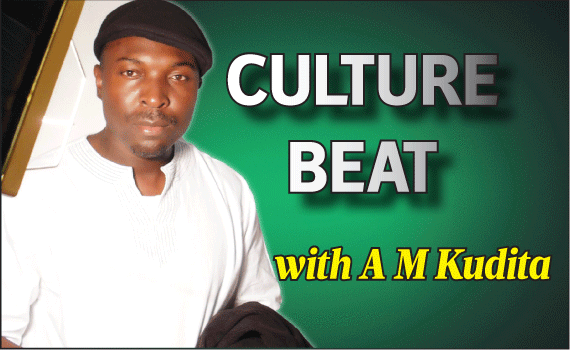
LAST week I shared with you my thoughts about the creative industries worldwide. I do appreciate the views of others on the subject and realise that there is an ongoing quest to find the holy grail answer to the question of establishing a viable creative industries framework for our country.
From the mayor’s desk Reading a newspaper article covering the mayor’s speech presented at a symposium hosted by Nhimbe Trust and Unesco this past week, I couldn’t help having the same feeling I had after reading Nigerian writer Chike Onyeani’s book Capitalist Nigger. It was one of frustration.
The following are the mayor’s reported comments concerning the cultural industries locally in Bulawayo: “A number of artistes from here are now based in Harare. The Harare-centric cultural output has fuelled tension around issues of Harare-based cultural ‘exclusivity and hegemony’, and consequently, reduced cultural diversity.”
My gripe in response There is no reward there in stating the obvious Your Worship!
“There is no one simple answer, basically the problem is caused by the whole macroeconomic environment. If our industries can begin to grow and absorb a lot of our people then people have extra money to pay for shows,” he said.
Second gripe in response Again, no reward for stating the obvious!
“These festivals bring life to the city. Council has an obligation to assist organisers of such events with resources, but at the moment it is unable,” he said.
Third gripe in response Mayor, I attended Jikinya Dance Festival which was held at the Large City Hall last year and I do not remember a single day when yourself as a city father or any of your high ranking officials attended. If you did attend, then your presence was not acknowledged.
- Chamisa under fire over US$120K donation
- Mavhunga puts DeMbare into Chibuku quarterfinals
- Pension funds bet on Cabora Bassa oilfields
- Councils defy govt fire tender directive
Keep Reading
In such a case, it would be a travesty. Inxusa Festival was held earlier in the year, I did not see you in attendance.
Officials from Harare came to the event. Did you need an invite to attend an event in your own backyard? You may appreciate that festivals bring life to the city, but what do you do to support cultural initiatives? Zilch!
And money is not even an issue here. You are probably waiting for trinkets to trickle from Mount Harare down to all of us here. What artists want is for the city father to attend events among other things, even lend moral support to the creative industry workers, to use his offices to facilitate cultural exchanges with twin cities.
How much money would that involve? I think you can even pass up the mayoral fifty thousand dollar vehicle for a cheaper Japan import in favour of such initiatives.
Moreover artists want you to meet them half way and give them concessionary rates for the venues especially if they are resident.
Develop your own cultural industries policy for the city that guides how you engage with the creative industries in the City of Bulawayo. Do you have such a document? Must Harare think on your behalf? I think playing victim can only take you so far.
What can your office or council do to take advantage of the rich cultural resources in the region? If you have no answers, create platforms or forums in which artists can engage and guide you. Yes, the economy must improve someday, but what happens in the mean time?
Do you play dead? My submission is that you can utilise your office to galvanise support for the recommended initiatives from civil society and multilateral organisations such as Unesco and Nhimbe Trust to mention a few.
What is required is a vision encapsulated in a document. Can you get to work? The city of Bulawayo once had Mike Ndubiwa who facilitated the construction of the Bulawayo Amphitheatre among many other things when he was a leader. Perhaps, our real problem is one of inspired leadership and where there is no vision a people perish!
Culture Week The Culture Week under the banner ‘Promoting cultural diversity and inclusivity’ was officially opened by the Sport, Arts and Culture minister Andrew Langa at the Bulawayo Amphitheatre last weekend.
I saw the small procession of a few dancers, drummers and drum majorettes holding up the banner marking the start of the week along Leopold Takawira Avenue this past weekend.
The minister’s speech mentioned among other things the matter of “exporting” the product from the creative industries. I concurred with the sentiments.
My recommendation to the minister is to exchange notes with others within the region to see what they have done to guide their own creative industries.
ZimAsset The economic blueprint for Zimbabwe has been hailed by many including one of Zimbabwe’s illustrious sons Dr Mthuli Ncube who is now at the African Development Bank. Yes, it does have its nay sayers, but its crux has been lauded for the document’s ability to articulate the overarching themes of our economy.
The reason I mention this document is to give an example of what a document can do by way of helping to chart the vision for progress and informing would-be partners to understand one’s developmental priorities.
Creative industries growth policy and strategy document To drive stimulate and drive the creative industries, we need a stakeholders’ workshop to forge the document. We need the relevant ministries, media, civil society, artists reps, Unesco, ZTA (representing tourism sector), ZNCC (marketing and auditing firms) and local government (the town clerks) to all be involved. The Mayoral office can serve as a rallying point for such an activity.
Points to ponder It is important to remember that the creative industries globally are powered by SMEs. Worldwide, companies such as Endemol who are behind the Big Brother, Fear Factor and Isidingo Africa brands, started small and have now grown to become giants that produce compelling content which is distributed globally and generating millions of dollars for its shareholders.
Founded by John van Mol and Hoop van den Ende in 1994, the company prides itself in being able to provide “innovative formats changing the face of popular culture”. Indeed, we need such in this country.
Feedback [email protected]










